Politics
/ArcaMax

JFK grandson Jack Schlossberg wears wig to troll Melania Trump
John F. Kennedy’s grandson Jack Schlossberg donned a blonde wig and spoke in a strong Eastern European accent to read First Lady Melania Trump’s letter to Vladimir Putin asking the Russian leader to restore the “melodic laughter” of children by ending his war against Ukraine.
A photo of Melania and her letter floated on the screen ...Read more

Do Americans think Trump can handle the Ukraine war? Poll shows shifting views
Most Americans doubt President Donald Trump’s ability to manage the Ukraine-Russia war, according to a new poll, which reveals a slight shift in views since last year.
In the latest Pew Research Center survey, 59% of respondents said they are not too or not at all confident that Trump “can make wise decisions when it comes to the war.” ...Read more

Myanmar junta sets Dec. 28 for first phase of general election
Myanmar’s military regime said it has scheduled Dec. 28 for the first phase of a general election, despite ongoing civil conflict and boycotts by democratic opposition groups.
The Union Election Commission announced Monday that seats in both chambers of parliament as well as at the provincial level would be contested in the “multi-party ...Read more

Trump administration in talks to take a 10% stake in Intel
The Trump administration is in discussions to take a stake of about 10% in Intel Corp., according to a White House official and other people familiar with the matter, in a move that could see the U.S. become the beleaguered chipmaker’s largest shareholder.
The federal government is considering a potential investment in Intel that would ...Read more

Rep. Dave Min criticized over since-deleted X post about 'Putin-Trump relationship'
U.S. Rep. Dave Min faced criticism over the weekend for a since-deleted X post that appeared to use a joke about same-sex couples to criticize recent world events.
The X post, shared Saturday morning, included a link to The New York Times’ live updates of the meeting between President Donald Trump and Russian leader Vladimir Putin in Alaska ...Read more

Comer says Justice Department will start sharing Epstein files this week
WASHINGTON — The Justice Department will start sharing records related to disgraced financier and sex offender Jeffrey Epstein with Congress by the end of this week, House Oversight and Government Reform Chair James R. Comer said Monday.
The committee, led by the Kentucky Republican, voted to subpoena the Justice Department for records ...Read more

On Putin's advice, Trump launches assault on mail-in ballots and voting machines
WASHINGTON — President Donald Trump said Monday he would renew his assault on mail-in voting after Russia's autocratic leader, Vladimir Putin, told him to do so at their meeting in Alaska last week.
The president provided few details, but wrote on social media that he would "lead a movement to get rid of MAIL-IN BALLOTS, and also, while we're...Read more

Trump meets with Zelenskyy, Ukraine allies after Putin summit
President Donald Trump Monday held a crucial meeting with Ukraine President Volodymyr Zelenskyy and a united front of European leaders at which he agreed to consider providing security guarantees to any peace deal after his controversial Alaska summit with Russian leader Vladimir Putin.
With Trump adopting Russian points that Ukraine should ...Read more

On Putin's advice, Trump launches assault on mail-in ballots and voting machines
WASHINGTON — President Donald Trump said Monday he would renew his assault on mail-in voting after Russia’s autocratic leader, Vladimir Putin, told him to do so at their meeting in Alaska last week.
The president provided few details, but wrote on social media that he would “lead a movement to get rid of MAIL-IN BALLOTS, and also, while ...Read more

Mayor Eric Adams sues NYC Campaign Finance Board over public matching funds denial
NEW YORK – Mayor Eric Adams is suing New York City’s Campaign Finance Board over its latest refusal to give him public matching funds for his reelection effort, claiming the panel has shown a “deplorable and anti-democratic bias” against him by withholding the critical cash, the Daily News has learned.
The board first started denying ...Read more

Socialist era ends as pro-business candidates triumph in Bolivia
Leer en español
Voters sent two pro-business candidates to Bolivia’s presidential election runoff, ending two decades of almost-uninterrupted socialist rule and likely transforming both the nation’s economic model and its relations with Washington.
With 92% of ballots tallied, opposition senator Rodrigo Paz, 57, led with 32%, compared to ...Read more

Decades of Socialist rule at stake as Bolivia vote count starts
The vote count is underway in Bolivia’s presidential and congressional elections that may end years of socialist rule and herald warmer relations with Washington.
The election took place amid unrest, shortages and the steepest inflation in more than three decades. The economic crisis has undermined support for the ruling MAS party, which has...Read more
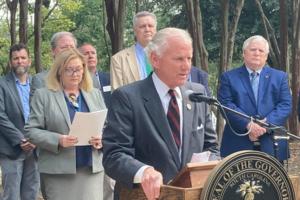
Gov. McMaster deploys SC National Guard to Washington to support Trump order
Count South Carolina among the states that is supporting President Donald Trump’s executive order to restore “law and order in the District of Columbia.”
On Saturday, S.C. Gov. Henry McMaster said that he approved of sending members of his state’s National Guard to Washington to enforce Trump’s order.
McMaster authorized the ...Read more
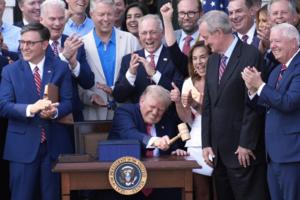
Tens of thousands of immigrants in Pa. and NJ will lose Medicaid next fall when “big beautiful bill” eligibility rules take effect
Tens of thousands of refugees, victims of human trafficking and domestic violence, and others who legally immigrated to Pennsylvania and New Jersey will lose Medicaid coverage next fall, when new eligibility rules established under President Donald Trump’s signature “big beautiful bill” take effect.
Currently, people with certain legal ...Read more
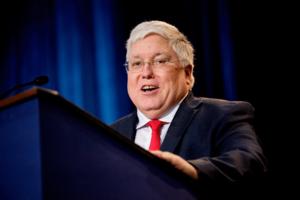
West Virginia Guard to join Trump's crackdown on crime in DC
WASHINGTON — West Virginia is sending several hundred National Guard troops to Washington to bolster the federal deployment that President Donald Trump has ordered in his effort to reduce crime in the nation’s capital.
Gov. Patrick Morrisey was responding to a request from the Trump administration in sending 300 to 400 of the state’s ...Read more
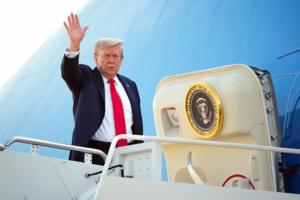
After welcoming Putin, Trump appears to adopt his goal, agreeing to cede land for peace
ANCHORAGE, Alaska — President Donald Trump made his expectations clear entering a summit with Vladimir Putin in Alaska on Friday: “I won’t be happy if I walk away without some form of a ceasefire,” he said aboard Air Force One.
Yet he did, emerging from their meeting in a diplomatic retreat, endorsing Russia’s territorial ambitions ...Read more
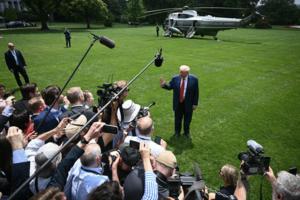
Trump's unprecedented shows of force in LA and Washington are pushing norms, sparking fears
LOS ANGELES — In downtown Los Angeles, Gov. Gavin Newsom was holding a news conference with Democratic leaders when the Border Patrol showed up nearby to conduct a showy immigration raid.
In Washington, D.C., hundreds of National Guard troops patrolled the streets, some in armored vehicles, as city officials battled with the White House over ...Read more
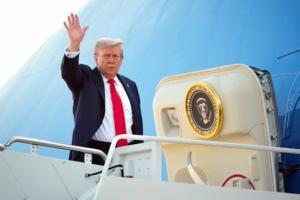
Putin, triumphant in Alaska, may be pressing his luck with Trump
ANCHORAGE, Alaska — President Donald Trump made his expectations clear entering a summit with Vladimir Putin in Alaska on Friday: "I won't be happy if I walk away without some form of a ceasefire," he said aboard Air Force One.
Yet he did, ending his meeting with the Russian leader with curt remarks, taking no questions from the press and ...Read more

DOJ backs off attempt to install emergency DC police chief
WASHINGTON — The Trump administration on Friday appeared to back off of its attempt to install a new “emergency” head of the Washington police force after local officials challenged the move in federal court.
The Justice Department identified Terry Cole, the head of the Drug Enforcement Administration, as the new “emergency police ...Read more
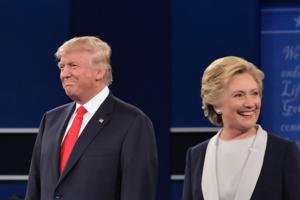
Hillary Clinton says she'd nominate Trump for Nobel prize if he ends Ukraine war
Hillary Clinton said she would nominate President Donald Trump for a Nobel Peace Prize if he can end the war in Ukraine under certain conditions.
“I understand from everything I’ve read he very much would like to receive the Nobel Peace Prize,” the former secretary of state said in an interview on the “Raging Moderates” podcast ...Read more
Popular Stories
- Tens of thousands of immigrants in Pa. and NJ will lose Medicaid next fall when “big beautiful bill” eligibility rules take effect
- Decades of Socialist rule at stake as Bolivia vote count starts
- Mayor Eric Adams sues NYC Campaign Finance Board over public matching funds denial
- Trump willing to meet with Democrats before shutdown deadline
- Gov. McMaster deploys SC National Guard to Washington to support Trump order






















































